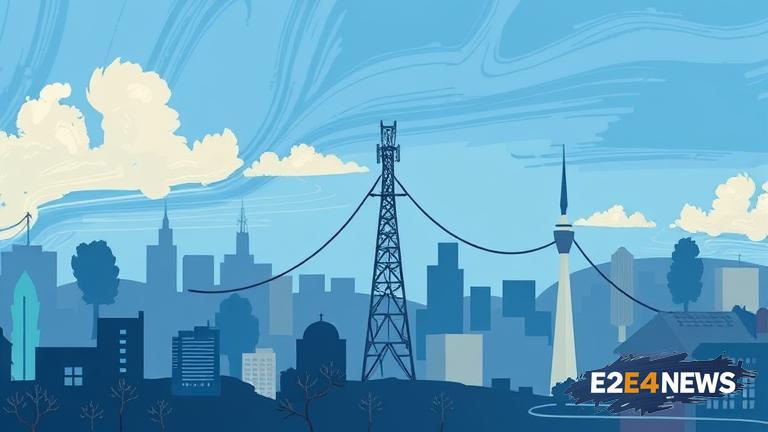The country of Georgia is struggling with a major issue that affects its citizens’ daily lives: slow and expensive internet. Despite being a crucial aspect of modern life, the internet in Georgia is plagued by poor speeds and high costs. This has significant implications for the country’s economic growth, social development, and overall competitiveness. The slow internet speeds make it difficult for businesses to operate efficiently, hindering their ability to compete in the global market. Furthermore, the high costs of internet services make it inaccessible to many low-income households, exacerbating the digital divide. According to recent data, Georgia’s internet speeds are among the slowest in the region, with an average speed of only 10 Mbps. This is significantly lower than the global average, which stands at around 30 Mbps. The high costs of internet services are also a major concern, with many citizens struggling to afford even the most basic plans. The situation is particularly dire in rural areas, where internet access is often limited and unreliable. The Georgian government has acknowledged the issue and has pledged to improve the country’s internet infrastructure. However, progress has been slow, and many citizens are growing frustrated with the lack of action. The issue is not just limited to individual citizens, but also affects the country’s economy as a whole. Slow and expensive internet hinders the development of e-commerce, online education, and other digital services. It also makes it difficult for foreign investors to operate in the country, which can have a negative impact on the economy. In addition, the slow internet speeds and high costs also affect the country’s ability to participate in the global digital economy. The Georgian government needs to take urgent action to address the issue, including investing in modern internet infrastructure and promoting competition among internet service providers. This can help to drive down costs and improve speeds, making the internet more accessible and affordable for all citizens. The government should also consider implementing policies to promote digital literacy and online skills, which can help to bridge the digital divide. Moreover, the government should work with international organizations and donors to secure funding for internet infrastructure development. The private sector also has a role to play in addressing the issue, by investing in modern internet infrastructure and offering affordable and high-quality internet services. In conclusion, the slow and expensive internet in Georgia is a major issue that needs to be addressed urgently. The government, private sector, and international organizations must work together to improve the country’s internet infrastructure, promote competition, and make the internet more accessible and affordable for all citizens. This can help to drive economic growth, social development, and overall competitiveness, and ensure that Georgia is not left behind in the digital age. The issue is complex and multifaceted, requiring a comprehensive and coordinated approach to resolve. The Georgian government and other stakeholders must prioritize the development of modern internet infrastructure, promote digital literacy and online skills, and ensure that the internet is accessible and affordable for all citizens. By doing so, Georgia can unlock its full potential and participate fully in the global digital economy.





